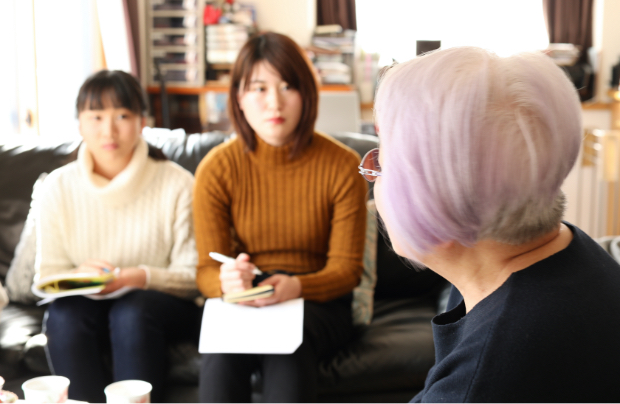HIROSHIMA memory keepers Succeed to history
Vol. 14 2018.6.25 up
I believe successors have to convey the facts objectively and unemotionally to the next generation.
Michiko Yamaoka
A-bomb Legacy Successor
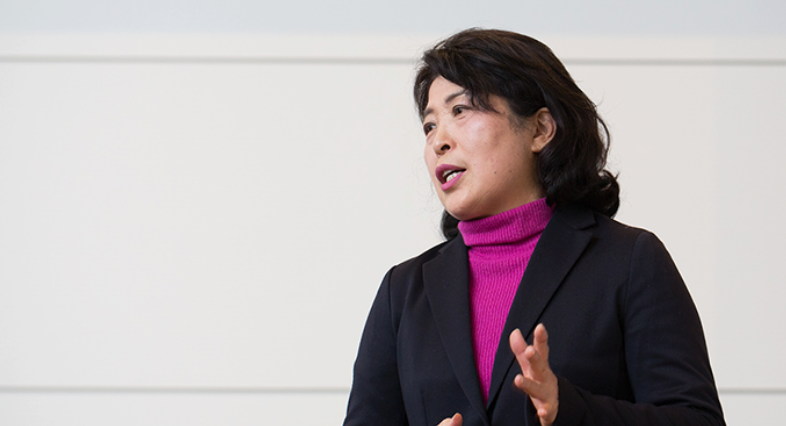
What do people handing down the experience of the A-bombing think and try to convey?
Michiko Yamaoka (67) has been an A-bomb Legacy Successor, telling stories in place of survivors, as well as a Peace Volunteer, guiding people from Japan and abroad around the Hiroshima Peace Memorial Museum and Peace Park. We asked her about how she started her activities and her message to young people.
About the start of her activity
Thank you for the opportunity to hear your talk as an A-bomb Legacy Successor.
We were overwhelmed by your informative and passionate presentation on the facts of the A-bombing.
Could you tell us what made you start this activity?

I was an ordinary housewife.
After my husband's death, my friends suggested that I get involved in a volunteer activity.
I started telling visitors the facts of the A-bombing around the A-bomb Dome in 2008 and became an A-bomb Legacy Successor in 2015.
Had you been interested in volunteering for peace activities before that?

No. Although I was born in Hiroshima and am a second-generation A-bomb survivor, I had never been interested in peace activities before I started. I didn't know much about the A-bombing, either.
I sometimes heard my mother, an A-bomb survivor, tell her experiences, but I had little interest in them.
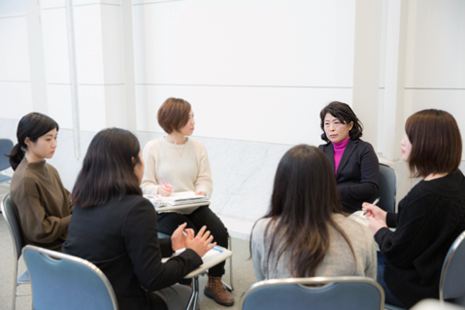
So, you got interested in peace through your peace volunteer activities?
Yes. The more I learn the facts of the A-bombing, the more information I want to get.The more knowledge I get, the more I feel I have to pass on that to future generations.
I think I have studied harder than anyone else because I myself have to know and think about war and history.
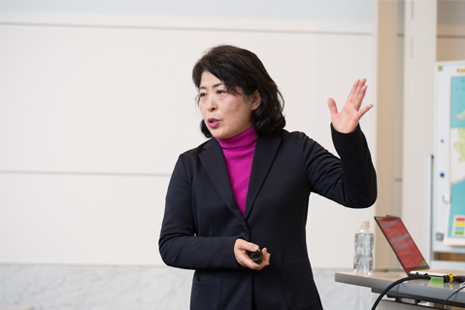
We have heard that you guide in English, too. Were you good at speaking English before starting the activity?
No. I was not good at it at all. I started studying English at age 58.
My English record at high school was 3 out of 10.
I really didn't like English. However, there were many opportunities when I was asked cont-ttl-qs by foreign visitors while guiding in the Museum and Peace Park.
So, I studied hard, listening NHK's Kiso Eigo, English for Beginner's program, on the radio with its textbooks.
What she does in her activities
Tell us what you meant when you said that you wanted to take in new information in your talk.
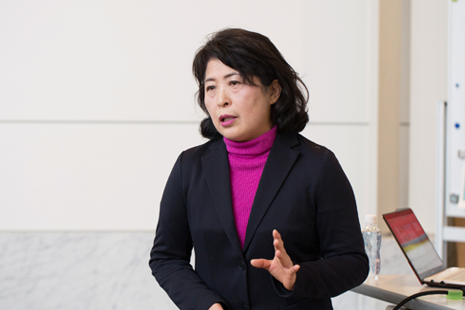
I think it is important for a Successor to give correct and objective information to listeners.
A-bomb stories should not be made-up stories that are enhanced to be attractive.
For example, if I said,
“The heat of the A-bomb was 3,000-4,000 degrees. Iron starts melting at 1,500 degrees. Now, imagine what happened to people on the ground,”
I shouldn't stop the story here. I don't want listeners to imagine the situation in their own ways. I would add,
“The irradiated time of the heat was 0.2-3.0 seconds. Just a short moment. Parts of human bodies that were not irradiated didn't develop burns.”
I think it's important to give correct information, not to allow listeners' exaggerated imaginations.
To obtain new information, I try to read articles related to Hiroshima in newspapers and online.
However, I try not to blindly accept the information. First, I check the facts myself, then, have a curator at the Museum confirm them, and finally put them in my talk.
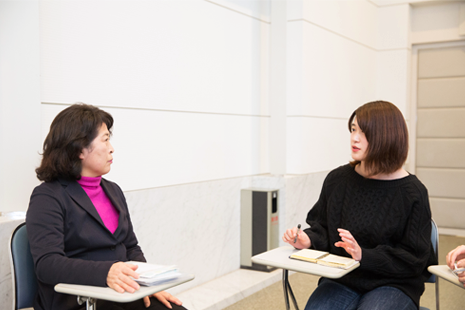
So, you try to convey A-bomb experiences not as A-bomb made-up stories, but as objective information of historical facts?
Yes. Survivors can tell what they have experienced while we,
Successors, should not make a story from what we have heard from them.
I believe Successors have to convey the facts objectively and unemotionally to the next generation.
What do you think of conveying survivors' thoughts besides the facts?
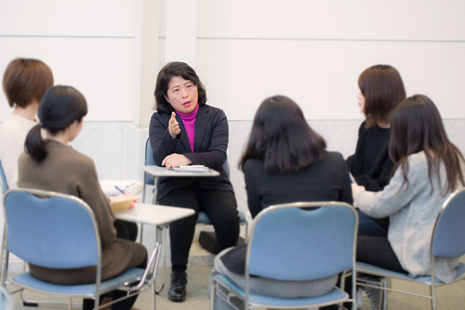
Well, I thought I could convey their thoughts when I started.
Now, I feel it is realistically difficult.
First of all, I have never had an A-bomb experience. I sometimes feel uneasy when thinking of whether I can pass down survivors' thoughts by just hearing their experiences.
I use pictures drawn by survivors in the materials I use in my talk to complement the talk.
I hope that through those pictures, listeners can feel survivors' thoughts.
Messages to young people
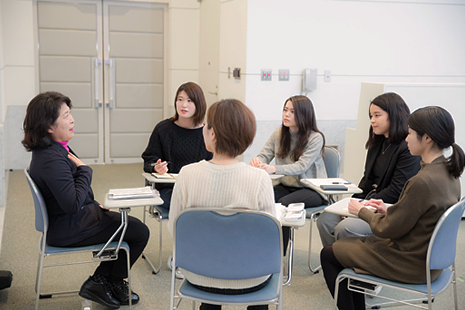
What can we do to make people who are not interested in peace have interest?
Well, how about inviting your friends to a sightseeing trip to Hiroshima?
Even if they are indifferent to peace, they might feel something when they see the A-bomb Dome or the Peace Memorial Museum.
And then, ask them, “What do you think of peace?” or “What would happen to you if war started?”
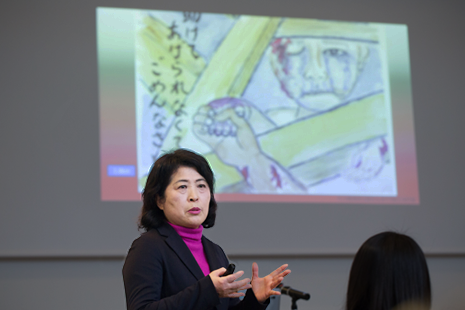
What is your message to young people?
In the first place, I don't want them to be indifferent to peace or war.
It is important for them to start thinking about what peace means for them or what they can do for peace.
Then, it is important to stay objective and unemotional.
Especially in these days when we can get information easily through the Internet, that is very important.
I would like them not to think the information from their friends or on the Net is always right, but to look at the information with their doubtful eyes,
and to keep thinking for themselves.
Interviewed on May 2018.
About
"Interviews with HIROSHIMA memory keepers" is a part of project that Hiroshima「」– 3rd Generation Exhibition: Succeeding to History
We have recorded interviews with A-bomb survivors, A-bomb Legacy Successors, and peace volunteers since 2015.
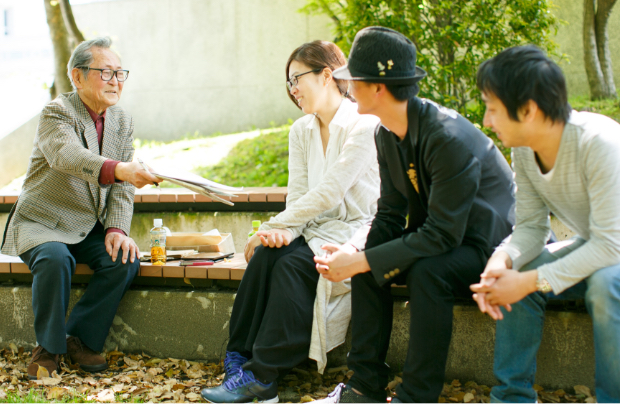
What are Hiroshima memory keepers feeling now, and what are they trying to pass on?
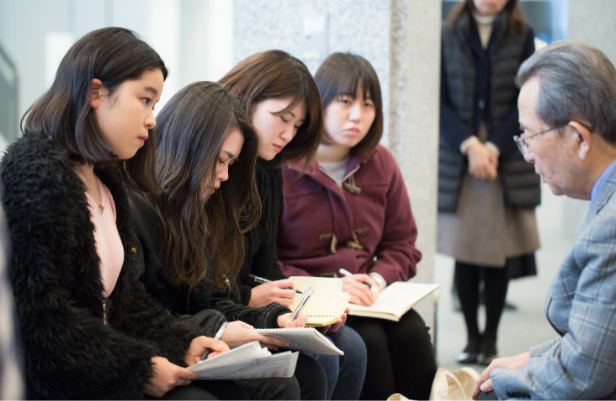
What can we learn from the bombing of Hiroshima? What messages can we convey to the next generation? Please share your ideas.
